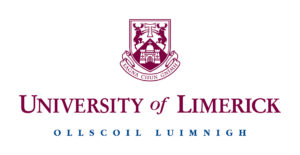In partnership with
Programme Profile:
This one-year skills-based programme, suitable for both public sector and private organisations, provides a sound introduction to management, for candidates who aspire to consolidate their existing operational experience and gain a formal management qualification. The Certificate in Management is delivered via Tutor facilitated interactive workshops. While based on relevant academic theories, concepts and techniques there will also be significant focus on individual personal development and the practical application of learning within the workplace.
Programme Outcomes:
On completion of the programme participants will be able to:
- Recognise and integrate fundamental core management principles and theories
- Differentiate the central managerial components of one’s organisational role from the technical and administrative components
- Apply a comprehensive range of management skills and techniques to improve individual, team and organisational performance
- Employ interpersonal skills, confidence and ability to achieve personal targets and goals
- Identify learning needs and commit to long-term professional development.
QUALIFICATION: NFQ Level 6
DELIVERY: Skills-based workshop at the Atlantic Aviation Group Training Academy, Shannon, Co. Clare
COSTS: *Funding may be available, contact the Atlantic Aviation Group Training Academy for details
DURATION: To be confirmed
CONTACT DETAILS:
Telephone: 061 717 726
Email: 147training@atlanticaviation.ie
Learning Approach:
- Each month a tutor facilitated skills based workshop is held at which practical exercises and applications reinforce the learning material studied by participants in the previous workshop
- Participants prepare for each workshop by completing private study sessions based upon guided reading, textbooks and self-assessment questions
- An assignment is completed for each module, with detailed written feedback from tutors
- Ongoing coaching, advice and support provided for the duration of the programme.
Candidate Profile and Requirements:
- Those who aspire to or currently hold their first Supervisory/Management position
- Those who wish to develop a range of skills including self-management, team management and interpersonal skills
- Those seeking a third level qualification in management
- The programme is open to managers, supervisors or those aspiring to a managerial role
with a minimum of two years organisational experience.
Attendance:
This course requires attendance at the Atlantic Aviation Group Training Academy in Shannon for one day every three weeks from September to April.
Program Delivery:
The course will be delivered at the Atlantic Aviation Group Training Academy in Shannon by the University of Limerick Kemmy Business School
Programme Outline:
AUTUMN SEMESTER
MG2101 Management and Leadership
Key role of front line manager; Managing Time: establishing objectives, setting priorities and scheduling time; Identification of core management skills; Authority, Responsibility and Accountability; Leadership theories and the Concept of Managerial Styles; Essential Skills of effective Leadership; Distinguishing Leadership from Management, also the formal and informal aspects of Organisations.

